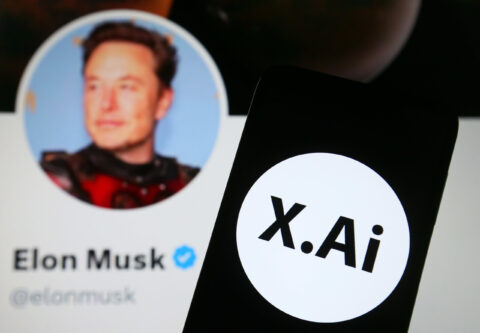Contents
ChatGPT Problems Today are taking center stage as a new privacy complaint filed in the European Union (EU) shines a spotlight on the AI chatbot’s inability to correct misinformation it generates about individuals. This latest development adds to a growing chorus of concerns regarding the technology’s compliance with the bloc’s General Data Protection Regulation (GDPR).
A Persistent Problem: ChatGPT’s Tendency to Fabricate Information
The well-documented tendency of large language models (LLMs) like ChatGPT to produce demonstrably false information has emerged as a significant hurdle. This issue not only raises questions about the technology’s overall reliability, but also sets it on a collision course with the GDPR, which governs how the personal data of EU residents is processed.
The potential consequences for companies failing to comply with the GDPR are substantial. Fines can reach up to 4% of a company’s global annual turnover, a significant financial penalty. However, for a well-funded organization like OpenAI, the real sting may lie in the power of data protection regulators to mandate changes to how information is processed. In the context of ChatGPT, such enforcement actions could fundamentally reshape how the technology operates within the EU.
ChatGPT Problems Today and the GDPR: A Clash Over Data Protection
OpenAI is no stranger to GDPR-related challenges. In 2023, the Italian data protection authority intervened, briefly forcing a localized shutdown of ChatGPT. This incident served as a wake-up call, prompting OpenAI to make adjustments in response to the regulatory scrutiny.
The latest complaint, filed by privacy rights non-profit noyb on behalf of an unnamed public figure, targets the Austrian data protection authority. The crux of the complaint centers on ChatGPT’s generation of an incorrect birthdate for the complainant. Under the GDPR, EU residents have the right to request rectification of inaccurate personal information. However, noyb contends that OpenAI failed to uphold this obligation in the case of the fabricated birthdate.
OpenAI reportedly responded by stating technical limitations prevented them from correcting the misinformation directly within the AI model. Instead, they offered to filter or block the data on specific prompts involving the complainant’s name. This approach falls short of addressing the core issue, as highlighted by noyb.
Transparency Concerns Compound ChatGPT Problems Today
The complaint goes beyond the rectification issue, raising additional concerns regarding transparency. Noyb argues that OpenAI lacks the ability to disclose the origin of the data used to generate information about individuals, nor can they specify what data the chatbot actually stores on users.
This opacity is problematic because the GDPR grants EU residents the right to request such information through a subject access request (SAR). According to noyb, OpenAI provided an inadequate response to the complainant’s SAR, failing to furnish any details about the processed data, its sources, or recipients.
Maartje de Graaf, a data protection lawyer at noyb, emphasizes the seriousness of the situation in a statement: “Making up false information is quite problematic in itself. But when it comes to false information about individuals, there can be serious consequences. It’s clear that companies are currently unable to make chatbots like ChatGPT comply with EU law, when processing data about individuals. If a system cannot produce accurate and transparent results, it cannot be used to generate data about individuals. The technology has to follow the legal requirements, not the other way around.”
The GDPR and the Future of ChatGPT in the EU
The noyb complaint represents just one front in a multi-pronged battle for OpenAI concerning ChatGPT Problems Today. A similar complaint was filed in Poland last September, and the Italian data protection authority’s investigation into ChatGPT remains ongoing. In January, the Italian authority issued a draft decision suggesting OpenAI may have violated the GDPR in several ways, including the generation of misinformation about individuals.
OpenAI’s attempt to mitigate regulatory risk by establishing a regional office in Dublin may not be enough. The GDPR’s “one-stop shop” mechanism could see complaints from various member states consolidated under the Irish Data Protection Commission’s authority. However, the sheer number of complaints and the potential for significant fines highlight the seriousness of the situation for OpenAI.
The outcome of these ongoing investigations and legal challenges will likely determine the future of ChatGPT’s operation within the EU. OpenAI faces a stark choice: either develop a solution to address the “hallucination” problem and ensure transparency in data processing, or risk being effectively shut down within the lucrative European market.
Read more: Elon Musk Sues OpenAI: Claiming Betrayal of AI Safety Mission







